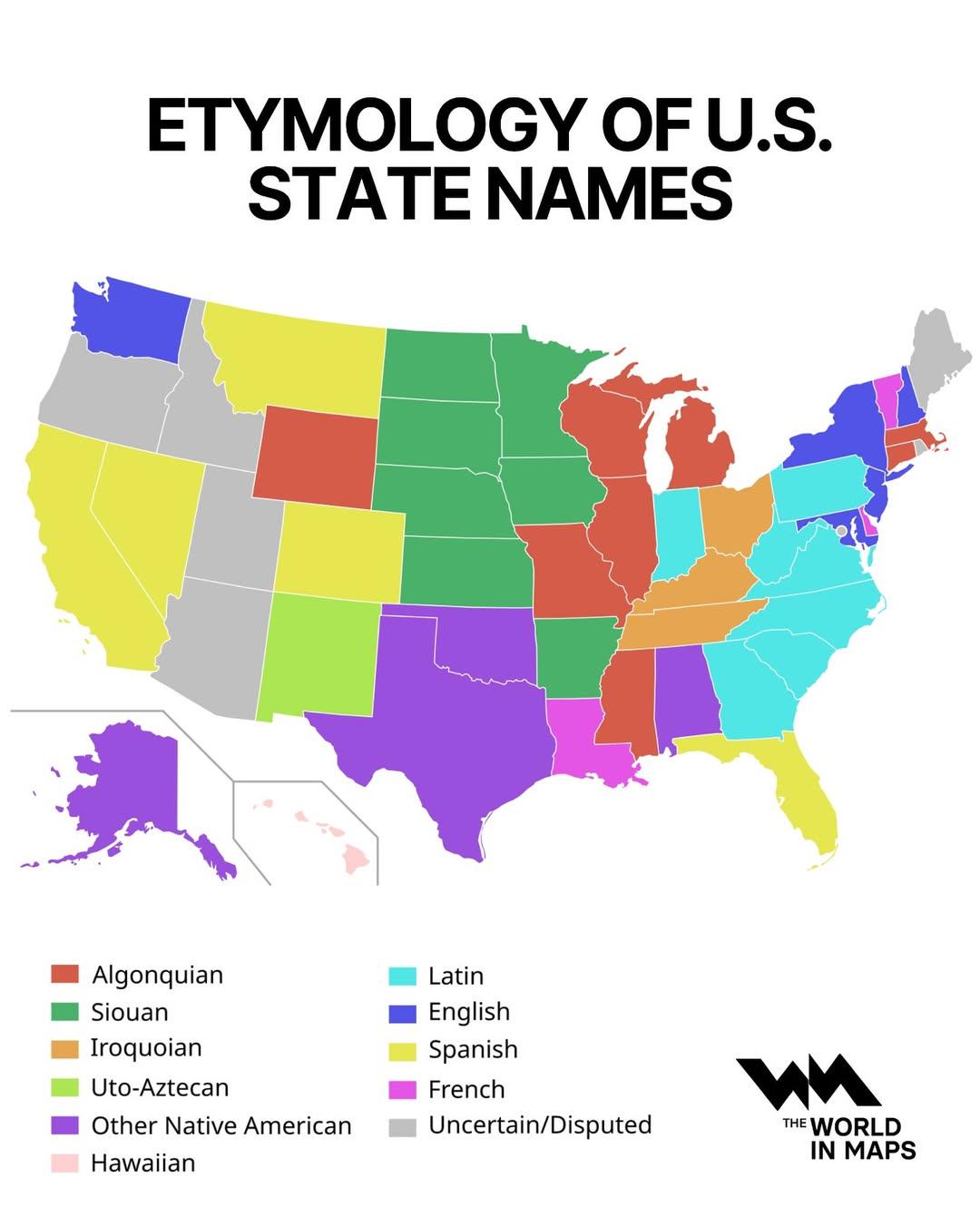Etymology of US State Names Map


Alex Cartwright
Senior Cartographer & GIS Specialist
Alex Cartwright is a renowned cartographer and geographic information systems specialist with over 15 years of experience in spatial analysis and data...
Geographic Analysis
What This Map Shows
The "Etymology of US State Names Map" provides a fascinating look into the origins and meanings behind the names of each state in the United States. Each state’s name is steeped in history, often reflecting the languages and cultures of the indigenous peoples, European settlers, or significant historical figures. The map visually highlights these etymological roots, allowing viewers to appreciate the rich tapestry of history and culture that shapes the identity of each state.
Deep Dive into Etymology of State Names
Have you ever wondered why certain states have names that seem foreign or unique? The etymology of U.S. state names is a window into the diverse historical influences that have shaped the nation. For instance, many state names derive from Native American words, reflecting the regions' original inhabitants. Take Massachusetts, for example; its name comes from the Massachusett tribe, meaning "at the great hill." This connection to the land is a common theme across many states.
Interestingly, some names are derived from European languages. States like Virginia and Georgia honor British monarchs, with Virginia named after Queen Elizabeth I, known as the "Virgin Queen," and Georgia named after King George II. This demonstrates the colonial influence on state identities, as settlers often chose names that reflected their heritage or those in power at the time.
Additionally, we find states like Iowa, which originates from the Ioway tribe, and Kentucky, which is believed to derive from the Iroquoian word "Kentake," meaning "land of tomorrow." These names highlight the importance of indigenous cultures and languages in American history.
In contrast, some state names have more obscure origins. For instance, the name "Alabama" is derived from the Muscogee (Creek) language, meaning "herb gatherers." This kind of cultural significance encapsulates the connection between the land and its people, providing a deeper understanding of each state's identity.
Regional Analysis
When examining etymology by region, we notice intriguing patterns. In the Northeast, states like Maine and New Hampshire have names derived from English words or places, reflecting the early colonial influence. Conversely, the Midwest showcases a blend of Native American names, as seen in states like Illinois, which comes from the Illinois tribe, and Michigan, derived from the Ojibwe word "michigama," meaning "large water."
In the Southwest, state names often reflect the Spanish influence, with Arizona and Colorado deriving from Spanish words for "little spring" and "colored red," respectively. This linguistic heritage is a testament to the region's complex history involving indigenous peoples and Spanish colonization.
The West presents a mix of influences, where states like Oregon are thought to have names derived from native terms, while others like California are rooted in Spanish explorers' references to mythical lands. The contrast between these names illustrates the diverse cultural narratives that populate the nation.
Significance and Impact
Understanding the etymology of state names is more than just a linguistic exercise; it has real-world implications. These names tell stories of the past, highlighting the interactions between indigenous populations, European settlers, and the evolving American identity. They offer insights into the cultural heritage that continues to shape contemporary society.
Moreover, as the U.S. becomes increasingly diverse, the meanings behind these names can foster a deeper appreciation for the nation’s multicultural roots. Recognizing the significance of state names can also influence tourism, education, and cultural preservation efforts. Ever noticed how a state’s name can spark curiosity about its history?
In conclusion, the etymology of U.S. state names reflects the intricate history of the land and its people. From Native American origins to colonial influences, each name carries a legacy worth exploring. As we look to the future, understanding these names may help us appreciate the diverse narratives that form the foundation of the United States.
Visualization Details
- Published
- September 26, 2025
- Views
- 50
Comments
Loading comments...